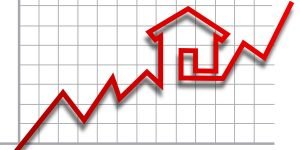The Canadian Government considers increasing the length of amortizations
Home prices have risen drastically over the past decade with some homes more than tripling in value. For the most part, interest rates have stayed quite low, only with a slight increase lately mostly as a result of the stress test. With this increase in home prices, we have not seen the average income increase to meet this demand. Let’s take a look at what the Canadian Government is doing to help remedy the situation.

Longer debt for home owners
Instead of dealing with the issue of household debt, it looks like the Government is actually trying to extend it, giving home owners the opportunity to make their dollar go further, and be in debt longer. Seriously. The Ministry of Finance is considering extending the maximum amortization for insured mortgages. The move would lower payments relative to 25 year amortizations, in exchange for paying more interest. The move helps in the short-term, but can cost households a lot more. In addition, it’s also likely to drive prices even higher during the next housing cycle. The Home Builders Association claim that this increase in amortization could be available very soon, allowing first-time home buyers to extend their dollar and increase their house hold debt. Yes this would mean that home owners’ dollars could reach farther, however they would be in debt longer. Let’s take a look at the numbers and see what this really means.
The numbers
According to Better Dwelling:
“Today we’re comparing the cost of different amortizations to a borrower. The home will be a typical Toronto home, which now costs $761,800. We’ll assume the borrower has 10% down (since it’s insured), and borrowing at a rate of 3.59% on a 5 year fixed. We’ll also assume the rate throughout the whole mortgage, which underestimates the cost. We’re currently near an all-time low for interest rates, which means they’re likely to climb. The numbers are for Toronto, but the ratios will apply to all regions, since we’re only extending the amort.

The taxes, maintenance, and insurance are not included in these numbers either. Also excluded are utilities, or anything else really. We’re just using the cost of the mortgage today, since that’s what’s being influenced. Actual costs are likely to be higher.”
At a first glance it looks like your monthly payments are lower, congratulations your dollar has stretch further. As a result of the increased amortization, you are paying more interest back to the bank. This makes housing more expensive in the long-term, thus providing you with more real estate debt.
“The government and industry always forget to mention it’ll cost people more… a lot more. The payments we ran on the 25 year amortization work out to a hefty $351,103 in interest payments over the term. Over a 30 year amortization, it jumps to $431,511 – about ~22.9% more than a 25 year term. Same house, lower payments, but you end up paying over 22 cents more per dollar you pay back.”

Benefiting the bank
Over the past 5 years real home prices across Canada have increased 42.65%. The amount of disposable income to service this debt increased only 12.65%. Affordability today actually improved across Canada by 7.29% since 2007. Real home prices have increased 86.54% over that same period. Outside of government and banks, few people would say doubling home prices is an improvement in affordability.
Are you still asking yourself, “will prices go higher?” Remember that this question is really long-term, and real estate/home prices work in cycles. We have just had a major cycle across the country, and now prices need to normalize in order to bring this cycle to a close, make way for new home buyers to enter into the market, and begin another cycle. It’s like the rhythm of the tides, what goes up, must come down. Long-term there is an upward trend, however within that increase the tides will rise and fall. Near-term, we’re looking at a global synchronized downtrend for home prices.
“If you’re a believer that home prices lead the business cycle, a recessions follows to purge economic inefficiencies. Recessions make it difficult to push prices higher. Instead, we would be likely to see the impact in the next real estate peak, in a few years.”
Source: Bank of Canada, Better Dwelling.

“The important thing is borrowers with a 30 year amort will pay less towards principal. While it does cost borrowers more, and it inflates home prices – it boosts bank revenues. Improving bank revenues is going to be a priority soon, since mortgage growth at the banks has dropped to multi-year lows. In hindsight, it seems less like a tool to improve affordability, and more of a stealth bank bailout.”
Make sure you keep up to date with our blogs, and video blogs in order to make the most informed real estate decisions.
For more information on real estate market in Vancouver, current trends, buying a home or selling a home, contact Leo Wilk – Your Top Vancouver Realtor.
— Don’t forget to follow Leo Wilk on Facebook | Twitter | Youtube | Instagram
